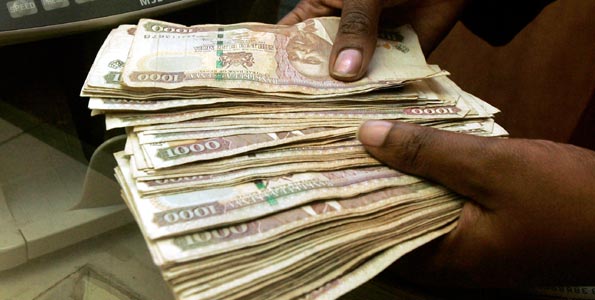Treasury is considering hedging to cushion Kenya from excessive foreign exchange losses in repayment of the Sh200 billion sovereign bond. Treasury Cabinet Secretary Henry Rotich said the Government had budgeted for an exchange rate of about Sh98 for every dollar. But the shilling has lost ground against the US currency and is now trading at about Sh102 for each dollar.
This means Kenya will repay about Sh4 more on every dollar. “We will consider hedging if it becomes necessary. We are repaying interest on the loan semi-annually,” said Mr Rotich who continued to downplay the impact of a weaker currency on the country’s ability to repay its foreign currency debts.
Hedging is a practice where firms enter into an agreement to control the price of a commodity. In this case, Treasury will be looking at fixing the amount of money it will be paying despite the volatility of the currency.
Treasury accepted bids of $2 billion in two tranches of $1.5 billion over 10 years and a five-year $500 million bond during its first ever sovereign bond on the international market. The debt is attracting interest of 5.875 per cent for the five-year portion while the 10-year bond had a yield of 6.875 per cent.
Should the volatility in the currency last another six months, Treasury will pay interest of about Sh13.5 billion on the loan, which is about Sh500 million more. See Also: Shilling slightly firmer against the dollar, Safaricom lifts stocks Rotich continued to defend the depositing of the proceeds of the bond in an offshore account on grounds that it was an international practice and the Government had decided to go to that route to be able to pay off an earlier debt of $600 million in syndicated loans.
Auditor General Edward Ouko has taken issue with depositing the money in a foreign account and sanctioning the payment of the debt without following procedure.
CONSOLIDATED FUND
The Government is required to deposit all the money collected from international loans in the Consolidated Fund and only withdraw it with permissionfrom the Controller of Budget.
Treasury Principal Secretary Kamau Thugge also maintained that the current volatility of the Kenyan shilling had nothing to do with the sovereign bond. “In fact it is our view that had we not brought into the country so much money in foreign exchange from the bond, the current situation would probably be much worse,” Dr Thugge said.
The two were speaking at a signing-off ceremony of a Sh3.2billion credit line from the Japanese government to support the health sector. “The credit will provide general budgetary support specifically to the health sector,” Rotich said. The loan will go to the free maternity service, health sector service fund, result-based funding to support county health management teams, the health insurance subsidy programme targeting 43,300 households and a capacity development programme targeting universal health coverage.
MEDICAL WASTE
Early in the year, Treasury signed similar agreements with the Japanese government for the provision of Japanese products targeting small and medium enterprises, the Mombasa development phase two project and a processing plant for medical waste.
To date, the Japanese government and its agencies have advanced Kenya Sh469.5billion in support of various development projects. See Also: Shilling slightly firmer against the dollar, Safaricom lifts stocks Jomo Kenyatta University of Science and Technology (JKUAT) and Kenya Medical Research Institute are among the biggest beneficiaries of projects being financed by Japanese governmentin Kenya.


